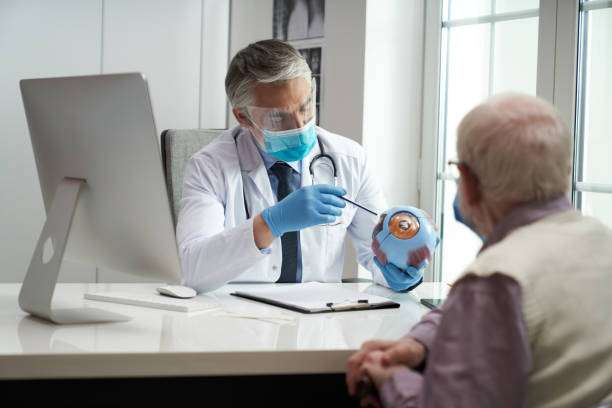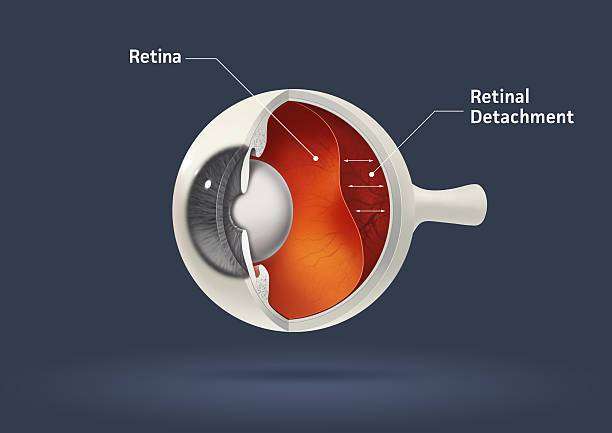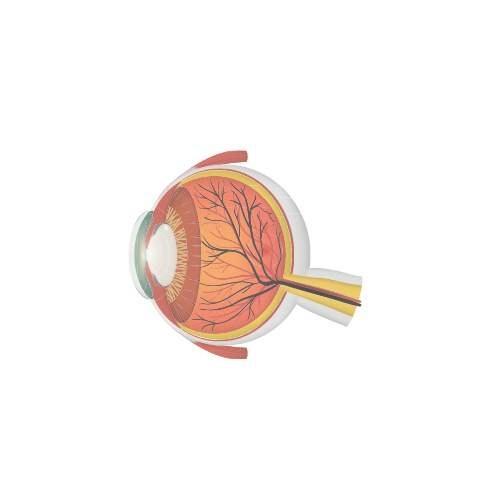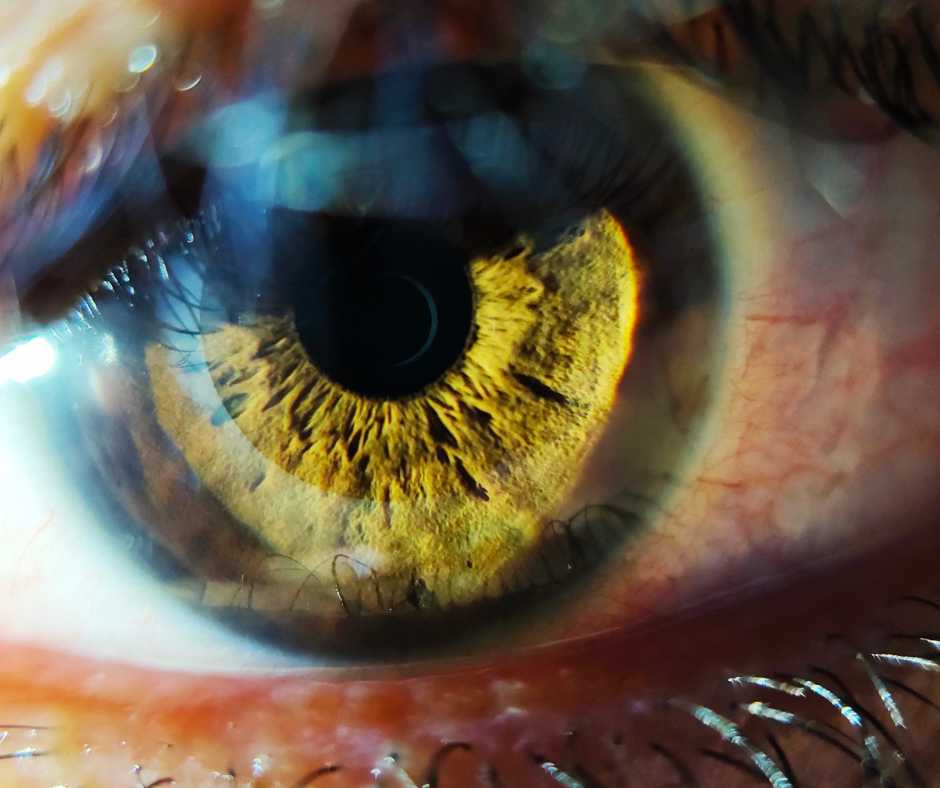What is Retina of Eye?
The retina is the inner layer of the eye (similar to the film of a camera). And It captures the light that enters your eye and sends the signals to the brain making you see everything. Light passes through the lens at the front of your eye and hits the retina. The separation of the retina from the attached surface is retinal detachment. There will be a partial or complete loss of vision in this scenario.
After all treatment of retinal detachment to attach the retina back to its place and restore your vision. Untreated, some retinal detachment can cause permanent severe vision loss or blindness.
Symptoms and signs of retinal detachments:
Retinal detachment itself is painless. If only a small part of your retina has detached, you may not have any symptoms. But if moreover of your retina is detached, you may notice these symptoms;
- Flashes of light in one or both eyes (photopsia)
- Gradually reduced side (peripheral) vision
- Blurred vision
- partial vision loss
- difficulty seeing at night
- A lot of new floating objects that float across your vision
- A dark shadow on the sides or in the middle of your field of vision
In this situation any type of retinal detachment is a medical emergency. If you have symptoms of a detached retina, go to the eye doctor or the emergency room right away. Early treatment of retinal detachment can help prevent permanent vision loss.
Treatments of Retinal Detachments:
The main treatment of retinal detachment is attachment. Early treatment is very important as long-standing damages cannot be reversed. Your doctor will work with you to determine which is the best treatment for you.
Laser Photocoagulation Treatment of retinal Detachments:
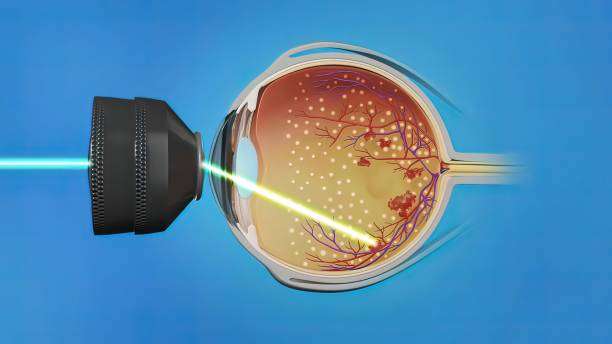
In generally retinal laser treatment in an early scenario prevents the retinal tears, diabetic retinopathy, macular edema, and retinal vein occlusion.
Intravitreal Injections for Retinal Detachments:
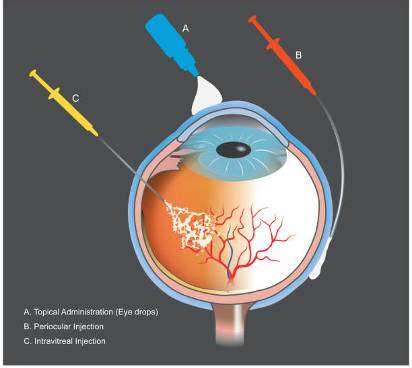
Basically Intravitreal injections place medication directly into the eye. As a result this injections prevent retina breaks and fix blood vessel leaks.
Will we experience pain during and after injections?
Not really. The injection given by microneedle after an aesthesia drops is painless.
Surgery for Retina Detachment: Vitrectomy Surgery
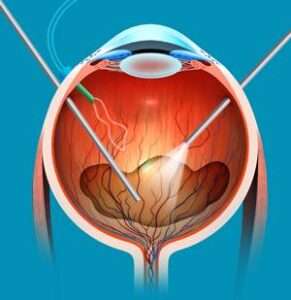
Vitrectomy eye surgery reattaches the retina. During a vitrectomy, the eye surgeon removes some or all of the vitreous (gel) from the middle of your eyes. The surgeon repairs the retina and reattaches the retina with the help of Special gas and Oil.
WHO ALL NEEDS A RETINA CHECK-UP?
In the first place the people with high-powered spectacles, all diabetics, and people above 40 years of age must get their retinas checked at least once a year.
HOW DOES THE DOCTOR CHECK MY RETINA?
In this case by putting some drops which dilate the pupils. at the same time dilating the pupils opens the window to see the retina. This process may take around half an hour. At Vijaya nethralaya we have a multimodal imaging system. some of our instruments can detect problems in the retina without requiring dilatation. In the view of our imaging systems are very advanced and on par with the best centers in the world.
CAN I DRIVE BACK AFTER A RETINA CHECK-UP?
Will someone need to accompany me for the check-up? – the pupillary dilatation can often cause significant blurring of vision for 3-4 hours. It is therefore recommended not to drive after the treatment of retinal detachment. It is for the same reason that we often ask someone to accompany the patient for the test. (especially patients with already poor vision)
DO ALL MYOPES NEED A RETINAL EYE EXAMINATION?
Yes, it is preferable. People with numbers are more prone to develop weak areas (Lattice Degeneration) and retinal holes. They are also at higher risk of retinal detachment, especially if there is also a family history.
DO WE NEED TO STAY IN THE HOSPITAL AFTER THE INJECTION?
The injections normally take just a few minutes. The patient is immediately allowed to go home.
CAN WE RESUME WORK THE NEXT DAY?
Yes definitely. The only care that needs to be taken is to Instill drops regularly.
About Authors:
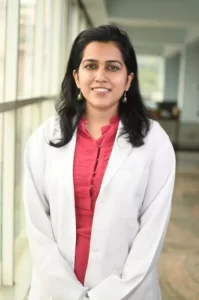
Dr. Mansi Mehrotra is Medical Retina And Uvea Consultant Ophthalmologist at Vijaya Nethralaya , Bangalore. With special interest in diabetic retinopathy and age related macular degeneration, Dr. Mansi has, over the course of her career performed several cataract surgeries. She has also treated retinopathy of prematurity with laser indirect ophthalmoscope . When it comes to academics, she has penned several publications for peer reviewed journals and presented papers at state conferences.
Article edited by Bikram Singhary

